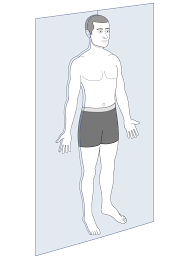This level of organization consists of groups of similar looking cells with its surrounding material working together to perform a function:
tissue
The science of body functions, and how the body parts work together inside an organism:
physiology
The body’s ability to maintain itself in a steady state is known as this:
homeostasis
This term means towards the front of the body.
anterior
This body cavity contains the lungs
thoracic
This is the smallest unit of an organism that carries out the basic function of life:
cell
This term describes an objective change in the body that a clinician can observe, measure, and/or calculate.
sign
This system reacts the fastest to outside disruptions that disturb the body equilibrium
nervous system
This cut divides the body into upper and lower portions
transverse
This plane is referred to as the 
frontal
This organ system removes waste products from the blood, regulates pH and water balance:
urinary
The study of structural changes associated with diseases is known as this:
Pathological anatomy
Blood clotting when cut is an example of what type of feedback
positive
This directional term describes the position of the antebrachium (forearm) compared to the brachium (elbow):
distal
This region of the body consists of the chest, abdomen, and pelvis.
trunk
This organ system transports nutrients, waste products, gases and hormones throughout the body and regulates body temperature:
cardiovascular
This symbol is associated with medicine and healthcare
the Caduceus
This term means on the same side of the body as another structure.
ipsilateral
This cavity surrounds the heart
pericardial cavity
List the levels of body organization
Tissue
Organ
System
Organism
This type of imaging requires the injection of a positron-emitting substance into the body.
Positron Emission Tomography (PET)
These two terms are used to describe the front and the back of the body
ventral and dorsal
The pelvic cavity contains these organs
urinary bladder, the remainder of the large intestine, and the internal organs of reproduction.